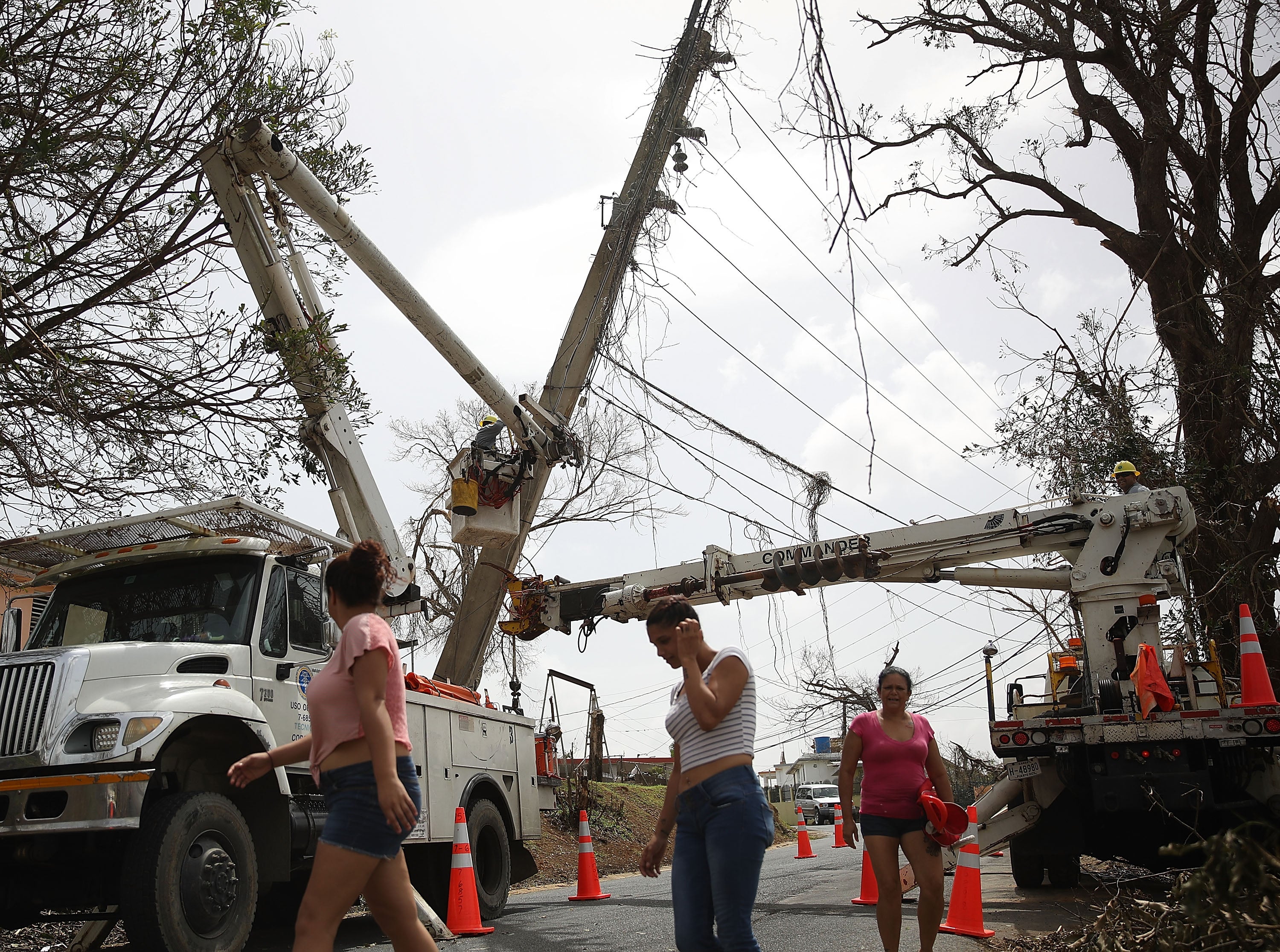
More than half of Puerto Rico’s power grid remains offline, seven weeks after Hurricane Maria caused massive damage to the U.S. territory.
This is the largest blackout in U.S. history, and efforts to restore electricity provision to the Puerto Rican population were not helped by a major power line failure last Thursday, which reduced capacity to 18%. According to the latest official figures, capacity is now back up to almost 48%, after the Puerto Rico Electric Power Authority (PREPA) fixed it.
The line had previously been repaired by Whitefish Energy, which denied that last week’s outage was related to the work it had done.
Whitefish, a Montana company with two employees, won a $300 million contract with Puerto Rico to fix its grid after Maria’s devastation. The deal was scrapped at the end of last month due to controversy over its staffing levels and a lack of transparency around its labor costs and profits. However, Whitefish will continue to work on the island until the end of this month.
According to a Sunday report in The New York Times, Whitefish billed PREPA $319 per hour for each lineman’s work, while paying its Floridian linemen as little as $42 or $63 per hour. The Army Corps of Engineers reportedly avoided hiring Whitefish because it charged twice as much as it should have.
Whitefish also charged $412 per worker per day for food and lodging. The deal is now being investigated by at least four congressional committees, the Department of Homeland Security’s inspector-general, and the FBI.
The NYT article also highlighted a second PREPA contract with an Oklahoma company called Cobra, which (unlike Whitefish) demanded a $15 million down-payment and (like Whitefish) forbade any audits.
This article originally appeared on Fortune.